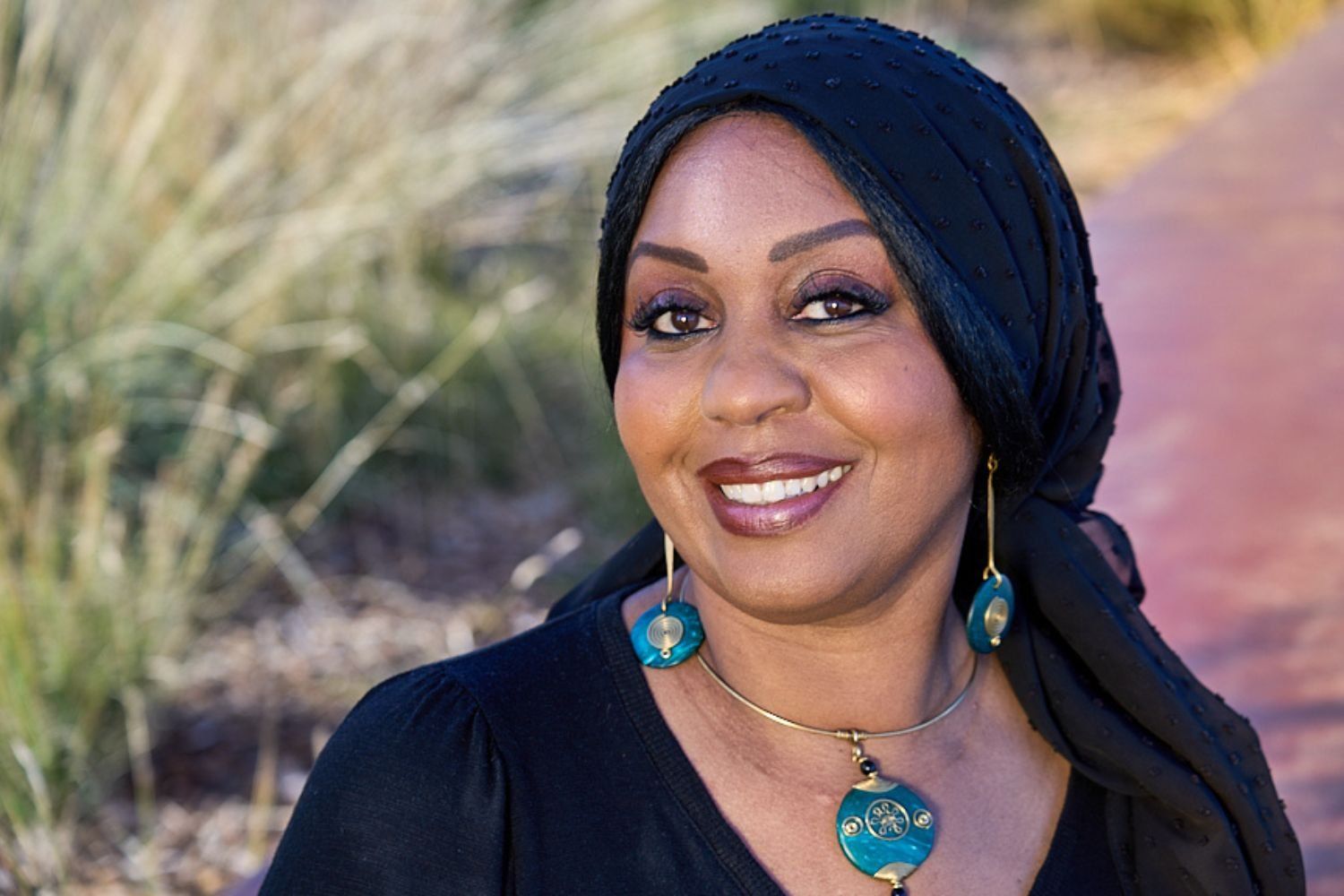Hana Baba’s Folktales Tell a Different Story About Sudan
In her new podcast, the Sudanese American radio journalist shares the stories she grew up hearing in Sudan with a global audience.
Hana Baba is also co-host of the award-winning podcast The Stoop, which tells stories from across the Black diaspora. As a daughter of Sudanese immigrants, she enjoys exploring East African cultures, multiculturalism, intersectionality, and the richness of experiences in African communities.
Every Friday during the holidays in Sudan, Hana Baba and her cousins would gather around their uncle Elbagir Gaafar. He is the keeper of their family's folktales, which he learned from his grandmother Fatna. "We'd all sit on the floor after sunset and have our little tea with milk in our hands and just wait for the show," Baba tells OkayAfrica. "The show didn't involve video or television. It was just my uncle performing these amazing stories about brave girls fighting witches and big ghouls - it was so much imagination, and I was just entranced."
Baba grew up in Indiana and Texas, but neither American children's programming nor Hollywood could compete with the folktales she heard from her Sudanese elders. "It's always been at the back of my mind and heart that these stories deserve a global stage," she says. "They deserve to be heard just like Hänsel and Gretel, Sindbad and Aladdin."
As a radio journalist, she upholds her family's long lineage of storytelling in her own right; amongst other things, Baba is the host of CrossCurrents, a daily radio newsmagazine that broadcasts on KALW Public Radio 97.1 FM in the San Francisco Bay Area.
Photo by Hana Baba
"The intimacy of audio and a love for the voice stayed with me from childhood," says Baba. She reports on immigrants and communities of color, health, education, race, identity, culture, religion, and arts.
There was always the fear that their stories would be gone once her elders passed on. "It is with this war that started in April 2023 that this urgency came to me," Baba says. "Seeing video after video of museums being bombed and our national archives destroyed struck a nerve with me."
The war has not yet stopped, but Sudanese artists have already gotten to work. They are collecting old cassette tapes, photographs, local fabrics, jewelry, and perfume to preserve culture and document the past and the present. Baba's craft is audio storytelling, so she finally returned to the folktales she had been raised with.
This April, she launched Folktales from Sudan, the first English language podcast to tell Sudanese folklore. This project is a family effort, created from long calls with Baba's mother, uncle, and aunts who had to flee Sudan. "The hosh (yard) where we sat and told these stories is empty now. The war is raging on, and folks don't feel like they can return anytime soon," she says.
In response, Baba takes listeners back to Sudan. Her stories unfold in very Sudanese settings like the hosh, where people eat Sudanese foods like fūl (fava beans), taamiya (falafel), and bamia (okra). There are animals like Kiret the goat or the eagle, through which we learn moral lessons. Most importantly, the tales feature Sudanese songs and chants that Baba and her cousins used to love singing along to as children.
All these stories were originally collected by Baba's great-grandmother, Fatna. She was married to a judge who worked in different parts of Sudan. "Wherever they were stationed, she would pick up the stories from that town and memorize them in her head," says Baba. "Our grandmothers didn't know how to read or write. They preserved these stories in their hearts and heads. They would not just sit on a chair - they would perform and act out the characters."
Turning Fatna's treasure trove, which covers all genres from comedy to horror, into a podcast was not a simple process. In some ways, Baba considers the responsibility to keep this heritage alive a burden, sometimes doubting that she is the right person. "To my family, this is a continuation of their legacy," she says. "They told me that these stories belong to me and allowed me to share them with the world."
Why did Baba translate the tales into English? "I think these stories have global potential," she asserts. "And I want them to be a gift to diaspora kids who are not comfortable with Arabic. They also deserve to enjoy their heritage." Ultimately, she hopes to pass this knowledge to her Sudanese American English-speaking children.
Translating culture is a challenging endeavor. Unlike the written word, oral history is alive and intended to adapt to different generations and times. Baba made adjustments that went beyond the language change. "There's a lot of misogyny and just straight-up racism in a lot of stories," she says about having to balance her desire to stay authentic while shaping stories that suit our current time. "There's no copyright, and nobody owns them. That's the beauty of it. I'm sure my great-grandmother Fatna also added her own flavor."
Photo by Aalaa Elbagir
Folktales from Sudan is dedicated to Baba's uncle, Albagir Gaafar, the family's folklore keeper.
Folktales from Sudan is a deeply personal project to Baba, who has spent the past 20 years fighting to expand Sudan's single story of war, famine, and poverty. "Maybe people can associate Sudan with a beautiful tradition of storytelling [instead]," she says. "One of the huge goals of this project is to hopefully bring an appreciation of a part of Sudan that people haven't heard of before."
